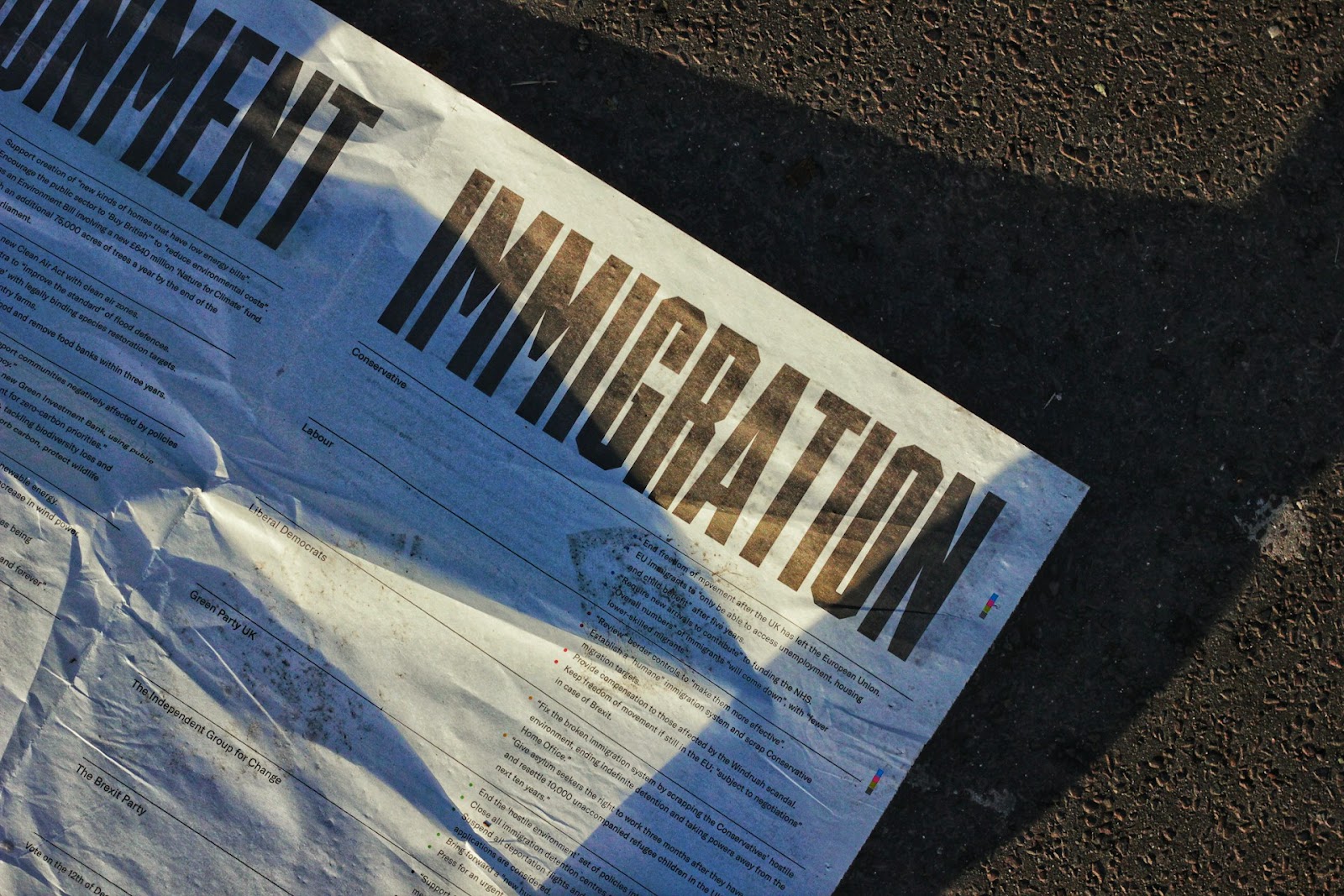领英
Facebook
Instagram
优酷
Legal document translation is crucial for ensuring that important documents retain their legal validity and precise meaning across different languages and legal systems. When it comes to translating legal documents, such as contracts or court papers, accuracy is paramount. Even a single mistranslation can have severe consequences, such as invalidating agreements or jeopardizing legal proceedings.
Many people mistakenly believe that anyone who is bilingual can handle legal document translation. This misconception often leads to costly mistakes and legal complications. Some individuals may think that using basic translation tools or relying on a bilingual friend is enough, but the truth is that legal translation requires much more than just being fluent in two languages.
Legal document translation demands specialized knowledge that goes beyond standard language skills. Whether it's a contract, certificate, or court document, the translator must have a deep understanding of both legal terminology and the intricacies of various legal systems. This is where certified translators come in—they possess the necessary qualifications and accountability that legal situations require.
In this article, we will explore an important question: Can Anyone Translate Legal Documents? What Makes Them Valid? We will delve into who has the authority to translate legal documents, what qualifications are significant, and how you can ensure your translations meet legal standards.
We will also discuss the certification process, the risks associated with using unqualified translators, and provide practical tips for selecting the right professional for your legal translation needs.
If you need professional help with legal document translation, it's essential to work with certified experts who understand the complexities involved. For example:
Legal document translation is a specialized translation field that requires more than just knowing languages. Translators in this field must understand complex legal systems, interpret specific legal terms, and be extremely accurate in their word choices. Unlike regular translation work, legal translation has strict rules where even one misunderstood word can ruin contracts or affect court cases.

The importance of being precise with legal language and structure cannot be emphasized enough. Legal documents have specific ways of using language, formal formats, and technical words that have exact meanings in their respective areas. A skilled language translator working on legal documents needs to know not just how to translate words literally but also what they mean legally and in context. Words like "consideration" in contract law or "estoppel" in property disputes have specific legal meanings that general translation methods cannot get right.
Translation services that focus on legal work are very different from those that handle general document translation. Here are some important areas where they differ:
Standard translation companies may be able to effectively translate business emails or marketing content, but they lack the specialized knowledge needed for legal documents. Legal translations require expertise that only comes from studying law or having extensive legal training.
A translation agency that specializes in legal work hires translators who have law degrees or significant experience in the field. This ensures that they not only understand the intricacies of language but also grasp the principles of law.
While machine translation tools are improving quickly, they still cannot handle the complexities of legal language. These automated systems do not have the ability to understand context, which is crucial for interpreting unclear clauses, cultural legal references, and specific terms related to certain jurisdictions found within legal documents.
The risks involved with translating legally require human expertise capable of comprehending both the source and target legal systems.
Another important aspect of legal document translation is keeping information confidential throughout the process. There are specific measures taken to ensure privacy and protect sensitive data during these translations.
It's also worth mentioning that professional training can greatly improve the quality of translations produced by individuals working within this industry sector. For example, certified course guide translation services offered by agencies such as ASAP Translate focus on providing accurate translations pertaining to syllabi (course outlines), curriculum outlines (educational programs), and grading criteria (evaluation standards) which can ultimately contribute towards academic success.
As we move towards an increasingly connected world, translation services play a crucial role in promoting global growth by bridging language barriers and facilitating cultural exchange.
This is especially true in e-commerce where professional translation services are essential for driving sales and improving customer experiences worldwide as highlighted in this article discussing top 10 translation services for e-commerce growth.
Legal document translation presents unique translation challenges that distinguish it from other forms of professional translation. You encounter obstacles that require specialized knowledge and careful attention to detail when working with legal texts.
Legal language contains intricate sentence structures that can span multiple paragraphs, creating significant translation challenges for even experienced linguists. You must navigate deliberately ambiguous statements that lawyers craft to cover multiple scenarios or interpretations. These ambiguities serve specific legal purposes in the source language but can become problematic when transferred to another linguistic system.
Legal terminology often carries multiple meanings depending on context, jurisdiction, and historical usage. Terms like "consideration" in contract law have specific legal definitions that differ dramatically from their everyday usage. You face the challenge of preserving these precise meanings while ensuring the translated document maintains its legal validity.
Different legal systems create substantial barriers in the translation of documents. Civil law systems operate under different principles than common law systems, affecting how legal concepts translate across languages. You must understand that a legal concept existing in one jurisdiction might have no equivalent in another, requiring creative solutions that maintain legal accuracy.
The same legal term can have vastly different implications depending on the country's legal framework. Contract enforcement mechanisms, property rights, and procedural requirements vary significantly between jurisdictions, complicating the translation process.
Automated translation tools fail to capture the nuanced legal terminology essential for accurate legal document translation. These systems cannot interpret context-dependent meanings or understand the cultural and legal implications of specific phrases. You cannot rely on machine translation for legal documents due to confidentiality concerns and the inability of algorithms to grasp the subtle distinctions that determine legal validity.
Machine translation lacks the human judgment necessary to handle ambiguous legal language and cannot ensure the translated document will hold up under legal scrutiny.
However, it's worth noting that some industries face similar translation challenges, like the gaming industry which has its own set of unique hurdles that require specific strategies for overcoming them. This guide on overcoming translation challenges in gaming provides valuable insights into this area.
Moreover, understanding how translation plays a crucial role in global supply chains can also shed light on the importance of accurate translations across different sectors.
For those needing specialized services, such as Bulgarian translation services, there are professional resources available that ensure accuracy and cultural relevance in documents.
Lastly, translating financial documents is another area where compliance is paramount. A detailed look at financial document translation ensuring compliance across borders could provide further understanding of this complex process.
The answer to "Can Anyone Translate Legal Documents? What Makes Them Valid?" is both yes and no. While technically anyone can attempt to translate legal documents, creating valid translations that hold up in legal proceedings requires specific qualifications and expertise.
Not just anyone can effectively translate legal documents for official use. Legal translation demands a unique combination of linguistic mastery and legal knowledge that goes far beyond basic language skills. You need translators who understand the intricate relationship between language and law, where a single misinterpreted term can invalidate an entire document or create unintended legal obligations.
A certified translator, such as those providing certified passport translation services or diploma translation services, holds official recognition from professional translation organizations or government bodies, demonstrating their competency in legal translation. These professionals undergo rigorous testing and maintain continuing education requirements to stay current with legal terminology and practices.
Sworn translators take this qualification a step further. They operate under oath to provide accurate translations and can face legal consequences for errors or misconduct. Sworn translators typically work within specific jurisdictions and must:
Valid legal translations require expertise in both language and law. You cannot simply be fluent in two languages, such as when using Spanish translation services, and expect to handle complex legal documents effectively. Legal translators must:
This dual expertise ensures that translations preserve not just the literal meaning of words, but the legal intent and enforceability of the original document. Furthermore, it's important to note the role of translation in broader contexts, such as its impact on language preservation, ensuring that even endangered languages maintain their cultural significance for future generations.

The validity of a legal translation hinges on specific requirements that distinguish it from standard document translation. Certified translation serves as the cornerstone of legal validity, providing official recognition that the translated document accurately reflects the original content. This certification process involves qualified translators who possess both linguistic expertise and legal knowledge, ensuring the translation meets court and government standards.
Notarization adds another layer of authenticity to legal translations. When you need documents for official proceedings, immigration applications, or business transactions, notarized translations carry the legal weight necessary for acceptance by authorities. The notarization process verifies the translator's identity and confirms their qualification to perform the translation, creating a legally binding attestation of accuracy. For instance, certified translations are particularly important in immigration processes, where they ensure accuracy, legality, and efficiency.
Certified translators provide certificates of accuracy that accompany their translations. These certificates include:
The certificate serves as your guarantee that the translation maintains the legal intent and precise meaning of the original document.
Attorneys play a crucial role in validating translated legal documents, particularly for complex cases involving multiple jurisdictions. Legal professionals review translations to ensure they capture nuanced legal concepts correctly and maintain the document's enforceability. This attorney validation becomes especially important when dealing with contracts, court filings, or regulatory submissions where misinterpretation could result in legal consequences.
Back translation represents another validation method where a different translator converts the translated document back to the original language. You can then compare this version with the source document to identify any discrepancies or lost meaning. This double-check process helps maintain the highest standards of accuracy required in legal contexts.
The combination of proper certification, notarization when required, and professional validation creates the framework that makes legal translations legally acceptable and enforceable across different jurisdictions.
Legal document translation encompasses a wide range of materials, each presenting unique challenges and requirements based on their intended use and jurisdictional context. Understanding these document categories helps you appreciate why specialized expertise becomes essential for accurate translation.
Business agreements contracts form the backbone of international commerce and require meticulous attention to contractual language. These documents include:
Commercial translations demand precision because a single mistranslated clause can alter the entire legal relationship between parties. You need translators who understand both contract law and business terminology across different legal systems.
Birth certificates translation represents one of the most commonly requested services in legal translation. These vital records, along with other personal documents, require careful handling:
Personal documents often serve multiple purposes across different jurisdictions, making accuracy critical for their acceptance by various authorities.
Immigration documents translation encompasses a specialized subset requiring knowledge of immigration law and procedures:
Immigration translations face strict scrutiny from government agencies, requiring certified translators familiar with specific formatting requirements and legal standards.
Litigation-related documents present complex translation challenges:
These documents often contain technical legal arguments and procedural language that varies significantly between legal systems.
Specialized legal fields generate their own translation requirements:
Each document type carries specific formatting requirements, terminology standards,

Professional translation services and specialized translation agencies play a crucial role in ensuring accurate and trustworthy legal document translation. Unlike individual freelancers, these organizations have strict quality control systems in place that guarantee high standards. By choosing professional services, you can benefit from their comprehensive approach, which typically involves:
Translation agencies specializing in legal work employ certified translators who possess both linguistic expertise and legal knowledge. These professionals understand the intricacies of legal terminology across different jurisdictions and stay updated with evolving legal language.
The advantages of choosing a professional translation agency over unqualified translators become clear when you consider the stakes involved:
Professional agencies also maintain strict confidentiality protocols, using secure systems to handle sensitive legal information. They employ project management systems that track document versions, ensure deadline compliance, and provide clear communication channels.
This systematic approach eliminates the uncertainty that comes with working with unvetted individual translators who may lack proper credentials or professional accountability.
Moreover, these services extend beyond just legal documents. For instance, if you require email translation services to ensure clear communication in business or personal emails across different languages, professional agencies can assist with that as well.
In the academic field, the importance of professional translation services becomes evident when dealing with academic transcripts. Such services ensure accurate and certified translations, supporting students in pursuing global educational opportunities.
Furthermore, agencies offer specialized services such as Hebrew and Punjabi translation services, ensuring accuracy and cultural relevance in your documents.
Lastly, it's worth noting that user manuals also require precise translations for a global audience. Professional agencies like ASAP Translate provide expert user manual translation services to improve usability and customer satisfaction.
The consequences of relying on uncertified translators or automated systems for legal document translation can be severe and far-reaching. When you entrust critical legal materials to unqualified individuals, you expose yourself to significant machine translation risks and human error that could jeopardize your legal standing.
Unqualified translators frequently misunderstand complex legal terminology, leading to translations that completely alter the original document's meaning. A single mistranslated clause in a contract could void agreements, create unintended obligations, or eliminate crucial protections. Machine translation tools compound these problems by failing to recognize context-dependent legal phrases that carry specific meanings within particular jurisdictions.
Consider how automated systems struggle with legal concepts like "force majeure" or "consideration" - terms that require deep understanding of legal principles rather than simple word-for-word conversion. These tools cannot distinguish between different meanings of the same word when used in various legal contexts.
Legal documents contain highly sensitive information that demands strict confidentiality protocols. When you use online machine translation services, you risk exposing privileged attorney-client communications, trade secrets, or personal information to third-party servers. Many automated platforms store translated content on their systems, creating potential security vulnerabilities.
Uncertified translators may lack proper confidentiality training or secure document handling procedures. They might inadvertently share sensitive information or fail to implement adequate data protection measures, potentially violating attorney-client privilege or regulatory compliance requirements.
The financial and legal consequences of these breaches often exceed the cost savings initially sought through cheaper translation alternatives.
Accuracy in legal translations requires strict quality control measures that go beyond regular translation practices. Professional translators use multiple verification steps to ensure precision in their work.
Proofreading is the first line of defense against mistakes. You should expect qualified translators to review their work multiple times, checking for:
Back translation is another verification method where a different translator converts the translated document back to the original language. This process reveals discrepancies and ensures the translated version maintains the source document's legal meaning.
Professional translators also use peer review systems where colleagues examine translations before final delivery. This collaborative approach catches errors that single reviewers might miss.
The best translator for legal documents follows strict ethical guidelines that protect client information and maintain professional integrity. These responsibilities include:
Translators must implement secure document handling procedures, including encrypted file transfers and secure storage systems. They cannot discuss case details with unauthorized parties or use confidential information for personal gain.
These ethical standards create a foundation of trust between legal professionals and translators, ensuring sensitive information remains protected throughout the translation process while maintaining the highest accuracy standards.
It's important to note that similar principles apply in other fields such as healthcare, where best practices for medical translations are crucial for enhancing patient care and safety.

Certification status stands as your first checkpoint when choosing certified translator services. You need translators who hold official credentials from recognized translation associations or government bodies. These certifications demonstrate their competency in legal terminology and adherence to professional standards.
Specialization in legal content separates qualified professionals from general word translator or text translator services. Legal translators must understand:
Experience with your document type matters significantly. A translator specializing in immigration documents may not excel with intellectual property agreements. You should verify their track record with documents similar to yours.
Reputation and client testimonials provide insight into service quality. Research their standing with legal professionals, law firms, and previous clients. Professional translation agencies often maintain detailed portfolios showcasing their legal work.
Turnaround times and availability affect your case timelines. Establish clear deadlines and confirm their capacity to meet your schedule without compromising accuracy.
Confidentiality protocols protect your sensitive information. Verify they maintain proper security measures, non-disclosure agreements, and ethical standards required for legal work.
Pricing transparency helps you budget appropriately. Quality legal translation services typically charge premium rates reflecting their specialized expertise. Extremely low prices often indicate insufficient qualifications.
Quality assurance processes distinguish professional services from basic translation providers. Look for agencies offering multiple review stages, proofreading protocols, and accuracy guarantees for their legal translations.
Can Anyone Translate Legal Documents? What Makes Them Valid? The answer is clear: while anyone can attempt translation, only certified professionals can deliver truly valid legal document translations that stand up in court and official proceedings.
Your legal documents deserve the highest level of expertise and precision. Professional certified translators bring specialized knowledge of legal terminology, jurisdictional requirements, and cultural nuances that generic translators simply cannot match. They provide the certification and accuracy certificates that make your translations legally binding and officially recognized.
The stakes are too high to risk using unqualified translators or machine translation tools. Legal errors can result in:
When you need a valid legal document translation summary that protects your interests, invest in certified translation services. Your legal documents require the same professional attention you'd expect from your attorney - don't settle for anything less than expert-level translation that ensures accuracy, validity, and peace of mind.